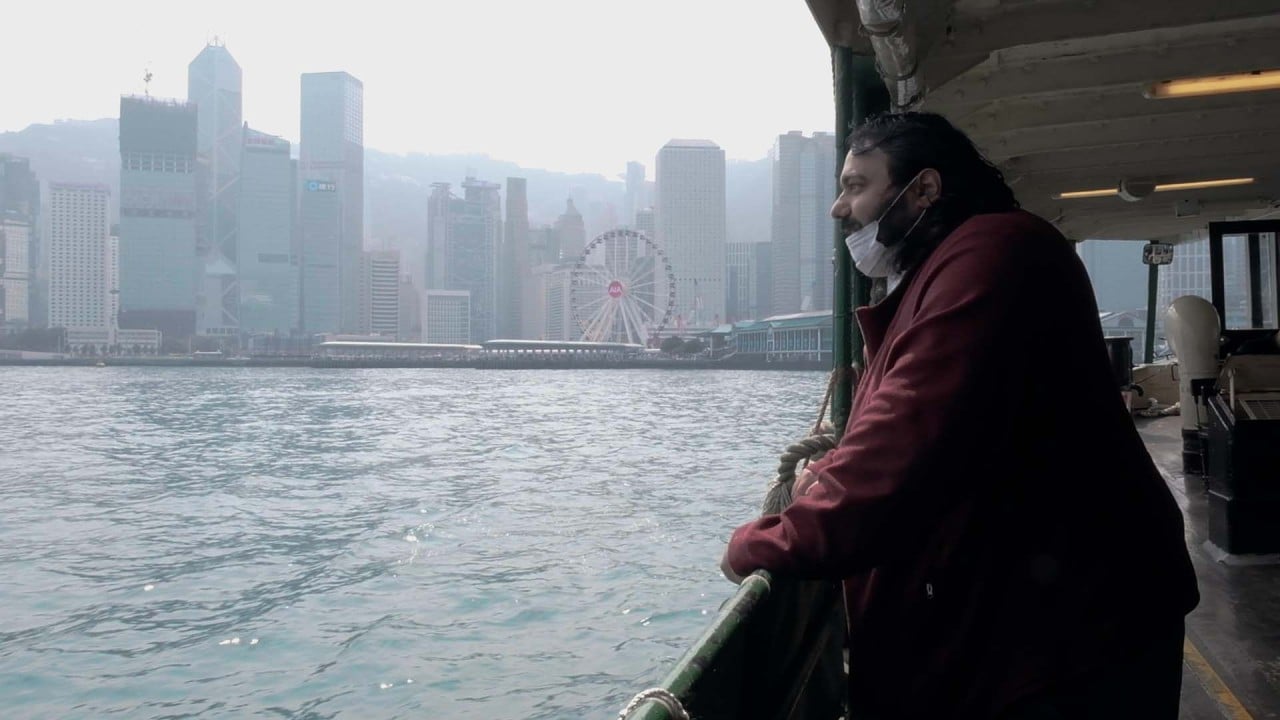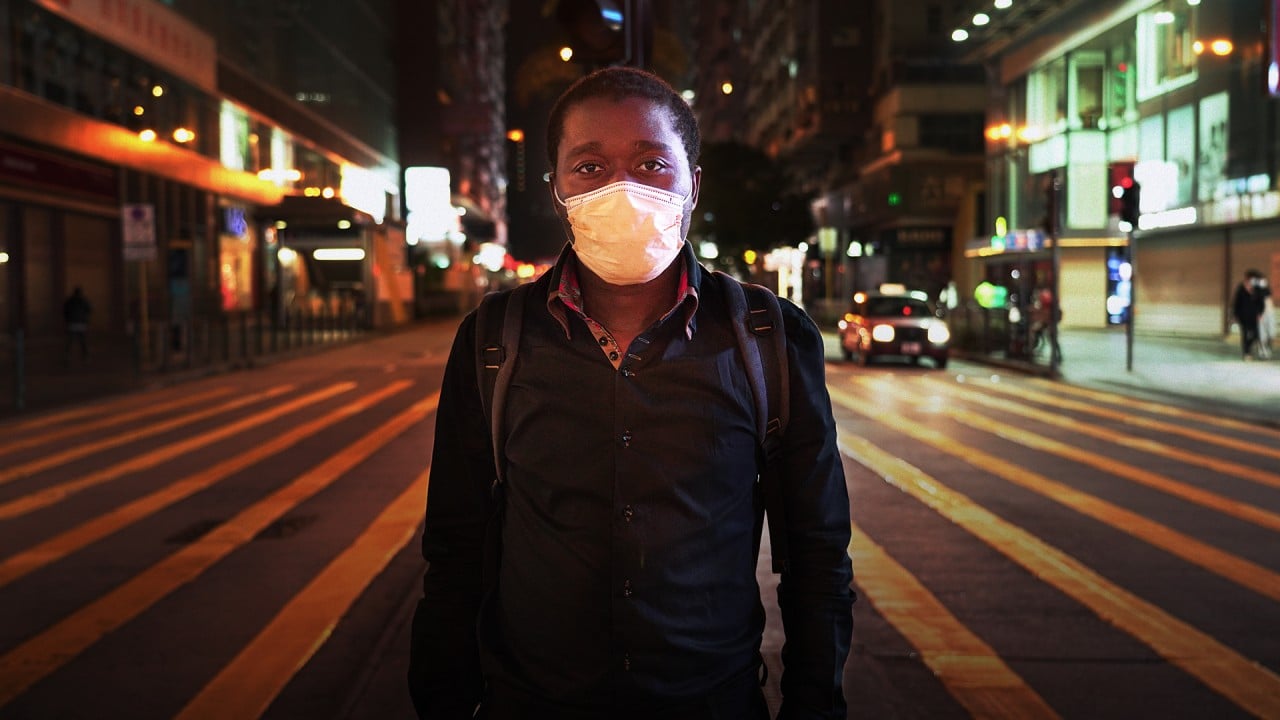
‘Misplaced priorities’: NGO accuses Hong Kong authorities of neglecting food, shelter needs of asylum seeker and 4 daughters despite education access
- Nermen Amer, 41, and her four daughters arrived in the city last year after fleeing their home in Egypt
- NGO Refugee Union says authorities have allowed the children to to go to school, but refuse to provide subsidies for basic needs
An NGO has accused Hong Kong authorities of misplaced priorities after they refused to provide an asylum seeker and her four daughters subsidies for food and shelter but allowed the children to go to school, a move that has left the family “desperate”.
“The fact that the Immigration Department allows them to go to school but does not allow them to eat surely indicates that their priorities are wrong,” a spokesman from the NGO Refugee Union said.
“They have been made extremely destitute and desperate because they were allowed to enter [the city] without humanitarian assistance.”
The Muslim Brotherhood is a transnational group of Sunni Islamists known for practising sharia law.
Upon arrival, they were detained at Hong Kong International Airport. Amer said they were released into the city on recognisance after three days when the United Nations High Commissioner for Refugees (UNHCR) wrote a letter supporting their right to seek asylum.
Hong Kong does not grant asylum as the 1951 United Nations Refugee Convention does not apply to the city. Instead, it offers non-refoulement, which ensures that asylum seekers will not be returned to a country where they were at risk of persecution or torture. Those who are granted refugee status can stay in the city until they are resettled to a third country.
Government statistics show that Hong Kong has about 14,900 non-refoulement claimants as of October last year. A large proportion of the cases, including Amer’s, are currently undergoing judicial review after their initial claims were denied.
Human rights lawyer Patricia Ho, who is working on Amer’s case, said the family had been in Hong Kong to seek asylum twice between 2010 and 2020 to escape persecution in her country and abuse by her ex-husband.
Ho said the two previous claims were recognised by the Hong Kong government and the family had received access to humanitarian assistance.
Refugee Union, established in 2014, said Amer’s case marked the first time it had heard of someone being allowed into the city on recognisance without humanitarian assistance. It urged authorities to provide support for all claimants, including those awaiting the verdict of their judicial review.
“We have not heard of anyone being denied humanitarian assistance. It would just push them into crime,” the spokesman said.

The government gives each eligible non-refoulment claimant humanitarian assistance totalling HK$3,200 (US$408) per month – HK$1,800 paid directly to landlords for rent and utilities, HK$1,200 in food vouchers and HK$200 for transport.
Amer said she and her family subsist on food coupons worth HK$400 provided by charities every month.
“We’re very grateful, but it’s not enough,” she said, adding that the family had been staying with her sister, who has a husband and three children, for the last two months.
“We are 10 people in a two-room house,” 19-year-old Noran, Amer’s eldest daughter, translated for her mother.
Before that, they had been given temporary accommodation by two charities focused on homelessness in the city.
However, the government did arrange for Amer’s second and third daughters to attend a local high school. The youngest daughter, aged 10, had her studies deferred for a year after she did not receive her paperwork in time to enrol in a primary school.
A spokesman from the Social Welfare Department said all non-refoulement claimants, including those on appeal, were provided with humanitarian assistance after assessment by the International Social Service Hong Kong Branch (ISS-HK), a group it commissioned to do the job in 2006.
The spokesman said they would provide food and shelter to anyone outside the scope of humanitarian assistance, while the Education Bureau would arrange schooling for school-aged claimants if the Immigration Department had no objection to their non-refoulement claims.
When asked why Amer and her family had not been granted assistance, ISS-HK said: “For an individual to be eligible … they have to be recognised as a non-refoulement claimant by the Immigration Department.”
For rejected cases that sought a judicial review, they would consider them on a case-by-case basis.
An Immigration Department spokesman said they would not comment on individual cases.
After being rejected by ISS-HK, Amer said she approached the SWD for food and shelter in March 2023 but was given only two packets of biscuits.

Human rights lawyers echoed Refugee Union’s appeal.
Rob Connelly, a human rights lawyer specialising in refugee law in Hong Kong, questioned if the denial aimed to make it difficult for Amer’s family to live here.
“We see this tactic used a lot,” he said.
Robert Tibbo, another lawyer who has handled a number of human rights cases in Hong Kong, said: “The government is legally obliged under prevailing case law to provide for their basic needs.”
Amer first arrived in Hong Kong in November 2010 to join her then husband, who fled to the city earlier that year to escape the Egyptian government’s crackdown on the Muslim Brotherhood at the time.
“To try and bring him back, state security kidnapped one of my sisters and beat my mother,” Noran said. “When they were released, we fled to Hong Kong.”
Amer said she and her children returned to Egypt in September 2012 to escape the physical abuse by her husband and she was no longer wanted by the state at the time.
The mother has a large scar on her face, which she said was a result of her husband slamming her head against a wall. Noran showed scars on her arm, which she said were inflicted by her father who burned her with lit cigarettes.
The family returned to Hong Kong in 2013 when the Egyptian authorities launched the most serious crackdown against the Muslim Brotherhood in 80 years.
Two years later, she divorced her husband in Hong Kong. But Noran said as her father kept finding and beating them, they returned to Egypt in 2020.
Amer remarried in 2021. But she said her ex-husband followed them to Egypt and sent threats of punishment, as the Muslim Brotherhood did not recognise their divorce and accused her of adultery and prostitution.
Fearing persecution from the group, Amer and her daughters returned to Hong Kong for a third time in October 2022.
“In our view, they have a stronger case than they did when they first came [in 2010]. There’s a lot of cases where domestic violence would be considered a matter that is serious enough to warrant protection,” Amer’s lawyer Ho said.



